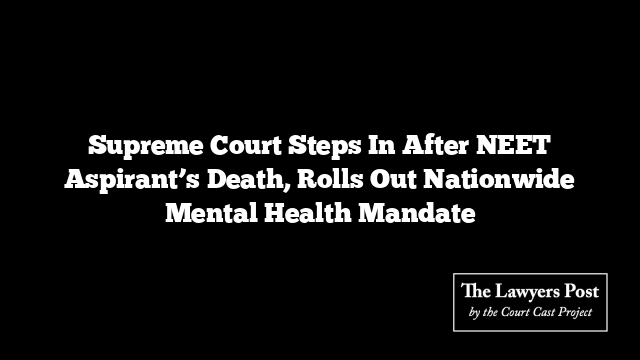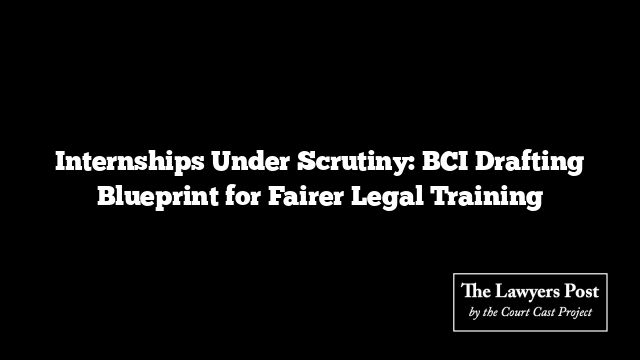In a move that sends shockwaves through India’s academic machinery, the Supreme Court has ordered a CBI probe into the suspicious death of a 17-year-old NEET aspirant and issued sweeping mental health directives aimed at transforming the emotionally brittle landscape of the country’s education system.
The young student, hailing from West Bengal, had moved to Visakhapatnam and enrolled at a prominent coaching institute to chase the NEET dream. What followed was a nightmare — she fell from the third-floor terrace of her hostel, later succumbing to her injuries. Her father, unconvinced by the local probe and suspecting everything from suppressed CCTV footage to medical lapses, knocked on the doors of the highest court after the Andhra Pradesh High Court refused a CBI investigation.
The Supreme Court Bench, led by Justices Vikram Nath and Sandeep Mehta, not only overturned that refusal but used the moment to sound a national alarm over the mental health crisis in India’s coaching corridors. The Court declared in no uncertain terms: mental health is not a luxury — it’s a right, enshrined within the constitutional promise of life itself under Article 21.
The judgment cuts deep, exposing how the pursuit of academic excellence has mutated into a pressure cooker of rankings, expectations, and performance metrics — a system where the “joy of learning” is long lost and where students are often treated as production units rather than people. Kota, Hyderabad, Delhi — the Court named them all, cities that have become synonymous with academic ambition but also with rising suicide statistics.
In the absence of any national law or unified framework for preventing student suicides, the Court invoked its constitutional authority under Articles 32 and 141 to roll out a binding set of mental health protocols for every school, college, hostel and coaching centre across the country.
Among the directives:
- Every institution must implement a uniform mental health policy, updated annually and publicly posted.
- Qualified counsellors must be appointed, with healthy student-to-counsellor ratios.
- Batch segregation by performance, public shaming, and unrealistic academic goals? Banned.
- Protocols for mental health emergencies must be in place, complete with helpline numbers displayed everywhere — from hostel hallways to classroom walls.
- Mandatory training twice a year for all staff to sensitively handle students, especially those from marginalised or vulnerable groups.
- Anonymous reporting mechanisms for sexual harassment, bullying, caste or gender discrimination must be established.
- Parents must be brought into the fold, with orientation and awareness sessions to help them spot distress and ease off the pressure valve.
- Hostels must be safe zones — free from bullying, drugs, and structural hazards like rooftop access or ceiling fan vulnerabilities.
- Annual reports will track mental wellness activity in each institution.
- Coaching hubs like Kota, Sikar, Chennai, Delhi, Mumbai — all must follow heightened protections.
District Magistrates or Collectors are to head local monitoring committees to enforce these rules, and all States and UTs must notify compliance guidelines within two months. The Union government has 90 days to file an affidavit detailing its action.
In the courtroom, a battalion of lawyers presented their cases — but the subtext was clear: India’s competitive education system has pushed its students to the edge, and the judiciary has had to step in where policy has lagged.
What began as a father’s desperate cry for justice has now become a clarion call for reform.
If you or someone you know is struggling with mental health or suicidal thoughts, please reach out to:
iCall: 9152987821 (Mon–Sat, 10 AM–8 PM, multiple languages)
Aasra: Support for emotional crises and suicide prevention





